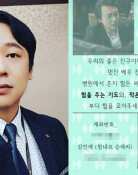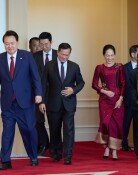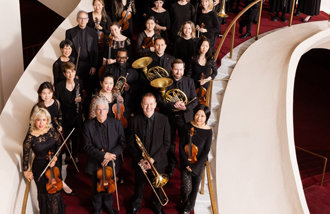Prosecutors Considering Who Should Take Charge
Prosecutors Considering Who Should Take Charge
Posted May. 29, 2007 06:48,
The prosecution is unable to decide which department should handle the investigation of the suspicions of corrupt police investigations in relation to Hanwha Chairman Kim Seung-yeons retaliatory assault. This is because it will depend on the many factors being considered, such as determining the characteristic of the case or deciding on what level the investigation should be carried out.
If the Seoul Central Prosecutors Office drug-related organized crime department, which had backed up the case until now, takes over the case, it would appear as if the characteristic of the case was considered as organized violence from the start.
However, it is difficult for the special investigation team to take charge in a situation in which the crime is not clearly evident because of the relationship with the police. Moreover, it does not seem appropriate for the criminal investigation department to take over the investigation of a case in which several former and incumbent high-level police officers are involved.
The focus of the prosecutions investigation is expected to be on determining whether bribes were made between Hanwha, criminal organizations, and police. Kang Dae-won, the chief of the investigating team at Namdaemun Police Station, is likely to be the first to be investigated, with suspicions that he contacted Oh, a member of a criminal organization, and that Hanwha attempted to provide him with a large sum of money. The next ones likely to receive an investigation inquiry are investigative director Kim Hak-bae of the Seoul Metropolitan Police Agency and Namdaemun Police chief Chang Hee-gon, who will be questioned on how Chairman Kims case was transferred from the Seoul Metropolitan Agencys investigation team over to the Namdaemun Police Station and whether external coercion was involved in the process. Also, questioning is inevitable of the two people who made calls to these officials: Choi Ki-moon, the former commissioner general of the National Police Agency, and Hong Young-ki, the former head of the Seoul Metropolitan Policy Agency who had headed the investigation at the time.
The question is what charges can be made against them. If it is confirmed that money was exchanged, they can be charged for bribery, but if that is not the case, it will be difficult to make a criminal charge. If the head of the case personally ordered that the case be concealed, a charge of misfeasance can be made. If high-ranking police officials leaked investigation information to Hanwha, a charge of breaching official confidentiality will likely be added. However, legal circles say that because the police did arrest Chairman Kim and carried out the investigation, it would be hard to argue that the police attempted to conceal the case, so a charge of misfeasance is unlikely.
A senior official from the prosecution said, Misfeasance is a charge that is very difficult for the prosecution to prove. He added, If there is no evidence that money was exchanged, this investigation may become a case that dish washed the results of the police investigation.
will71@donga.com






